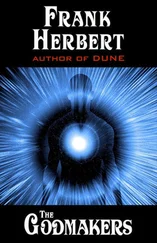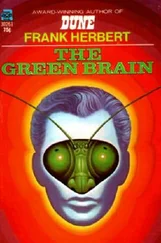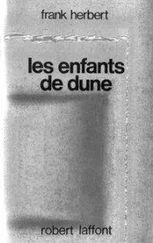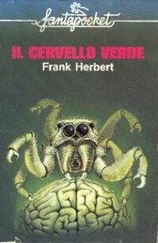Frank Herbert - Destination - Void
Здесь есть возможность читать онлайн «Frank Herbert - Destination - Void» весь текст электронной книги совершенно бесплатно (целиком полную версию без сокращений). В некоторых случаях можно слушать аудио, скачать через торрент в формате fb2 и присутствует краткое содержание. Год выпуска: 1965, Жанр: Фантастика и фэнтези, Эпическая фантастика, на английском языке. Описание произведения, (предисловие) а так же отзывы посетителей доступны на портале библиотеки ЛибКат.
- Название:Destination: Void
- Автор:
- Жанр:
- Год:1965
- ISBN:нет данных
- Рейтинг книги:5 / 5. Голосов: 1
-
Избранное:Добавить в избранное
- Отзывы:
-
Ваша оценка:
- 100
- 1
- 2
- 3
- 4
- 5
Destination: Void: краткое содержание, описание и аннотация
Предлагаем к чтению аннотацию, описание, краткое содержание или предисловие (зависит от того, что написал сам автор книги «Destination: Void»). Если вы не нашли необходимую информацию о книге — напишите в комментариях, мы постараемся отыскать её.
Destination: Void — читать онлайн бесплатно полную книгу (весь текст) целиком
Ниже представлен текст книги, разбитый по страницам. Система сохранения места последней прочитанной страницы, позволяет с удобством читать онлайн бесплатно книгу «Destination: Void», без необходимости каждый раз заново искать на чём Вы остановились. Поставьте закладку, и сможете в любой момент перейти на страницу, на которой закончили чтение.
Интервал:
Закладка:
Bickel met Flattery's gaze in the screen. "Have you been listening, Raj?"
"I've been listening," Flattery said.
"Have we gone sour, yet?" Bickel asked.
"You really think I'm this hypothetical human fail-safe device?" Flattery asked, holding his tone to a nice balance between mockery and injured innocence.
He almost goes too far, Prudence thought. If he isn't underestimating Bickel, he's pressing the limits. One course is as dangerous as the other.
"You're the logical candidate," Bickel said, "but I was asking for your comments on progress."
Flattery suppressed an abrupt feeling of jealousy. Bickel, in spite of the obvious flaw - and that was a gaping thing - balanced so beautifully. Or... he appeared to balance, which was much the same thing as far as this operation was concerned.
"Ahhh, progress," Flattery said. "If I understand your original test correctly, the pulse-time distances didn't check out with the space distances. They weren't proportional."
"That's essentially it." Bickel wondered why Flattery's tone made him feel so defensive. "They averaged out to almost a zero product."
"The artificial nerve nets produce something vaguely equivalent to psychological space." Flattery paused, scanned the Com-central board, returned his attention to the screen and Bickel. "You can say that the test pulses are more or less like sense data feeding into psychological space...egion somewhat equivalent to what Prudence calls imbedding space. I like her cobweb-and-ink analogy. But there's a big difference between physical space and psychological space."
He let it hang there a long time, forcing Bickel to admit a dependency upon someone else's expertise.
"If you're going to explain it, then get at it," Bickel said. There was anger in his voice. He didn't enjoy depending on Flattery.
"Okay." Flattery kept his tone even and friendly.
"You can time a signal across physical space, repeat it and get matched results. Any difference will have a positive relationship to a change in distance. But psychological space... now, that's something else again. The time there could depend on mood. What's mood, John? Is it a comparison between this and previous experiences of a similar kind? Your pulse-time in psychological space will meet many more variables than it does in physical space."
"Are you saying we haven't analyzed our results correctly?" Timberlake asked. He glared up at the screen, feeling that he and Prudence and Bickel were arrayed somehow against Flattery.
"You're trying to arrive at some proportional comparison between the sense world and the physical world," Flattery said. "But you can't use the same rules of measurement. Each neuron in your net will introduce an element of random conduction time and you get more randomness from the similar variation in synaptic delay time. The difference between the sense world and the physical world is the difference between time distance and space distance. And the most casual examination of your setup indicates you'll have random time distances."
"Zero by probability," Bickel said. "That won't wash."
"That shot-effect test," Flattery said, his voice bored, "fired off impulses which weren't time-regulated. You got a variety of delay times there and in your system. That could average out statistically - by probability mechanics."
"Over the entire net?" Bickel demanded.
"Why not? The bigger the net, the more likely this is to be true. And your net here took in the entire computer."
"But we got the right answer from the translator," Bickel said, his voice pouncing. "Try probability on that!"
"I wouldn't think of it," Flattery said. "No more than I'd think of coming to definite conclusions on the basis of one test run."
Bickel glared at him. "Okay, we'll run it again!"
"No, you won't," Flattery said. "Not without figuring how to isolate your Ox from the computer... and before you think of taking any storage units out of the system, ask yourself which one it'll be. Will it be a unit protecting the life of someone in the hyb tanks? How about a unit controlling the drive?"
"We can't tell one from the other without a complete block-sort of the entire system," Bickel protested.
"Exactly. That shouldn't take more than eight or nine years - with the manpower available to us."
Flattery's argument was unassailable, Bickel knew. This didn't ease the anger that surged through him at the sight of the man's coldly superior attitude. Still, Bickel felt they had approached some unspoken, elusive, and vital fact that all of them should recognize. They had approached it and wandered away.
"Then we'll transmit the problem back to Moonbase and let them run it for us," Bickel said.
"Forgetting your analysis of why we were sent out here to solve it," Flattery said.
"Ahh, you're admitting we were sent out here to sink or swim."
"I'm admitting nothing, but I'd suggest you come in and man the AAT. A message has been reeling in from Moonbase for the past minute."
CHAPTER 16
The high data-rate sense perception and identification abilities of the human system mostly bypass verbal/analytic awareness. We are generally conscious of a cognitive recognition after the fact. In this way, what we understand as consciousness has to be identified as a reflexive monitoring ability with quite limited application. To produce consciousness (artificial or otherwise) we are stepping down, not up.
- John Lon Bickel (#5), Message Capsule datumMORGAN HEMPSTEAD'S burst-depersonalized voice filled the control room as Bickel started the playback of the new message from Moonbase.
"Calling UMB ship Earthling. This is Project calling UMB ship Earthling."
A long, rolling silence followed and they grew aware of the hissing of the tape as it sped across its sorting heads.
To Prudence, that hiss was something primordial and perilous. It was a noise from the slime of evolution and she felt that some dangerous part of her own brain came awake at hearing it.
That's foolish, she told herself. I'm reacting to my last injection.
That had to be it: the chemical experiments on her own flesh were creating imbalances. She was using a series of variations on tetrahydrocannabinol now, shifting the CH3 forms and adding oxygen.
That was just the hissing of tapes, she reminded herself. But her head wanted to move from side to side. Something within her was fascinated by that sound.
Bickel glanced around the room - Flattery at the big board yet, composed and so serenely sure of himself; Prudence in her action couch and with her eyes intent on the vocal translator at the AAT; Timberlake in his couch, eyes closed, breathing deeply. One might almost think he was asleep, but for the pulse at his temple. Bickel recognized that mannerism of Timberlake's. It meant the man was chewing over a heavy problem.
"Hit it," Hempstead said.
"That must be an error," Bickel said. "The AAT goofed on that one."
"We do worse ourselves sometimes," Flattery said.
"On the question of defining consciousness," Hempstead said. "Reference is made to nerve barrier and threshold data your computer. Best dive to date."
"Best definition to date," Flattery said. "That's what he must've said."
"New Organic Mental Core," Hempstead said. "Medical personnel are directed to abandon all such repeats in their waste of order."
"There's something wrong with the AAT," Prudence said.
"Not with the AAT," Bickel said. "With the translator circuits from the computer."
"That goddamn wild program we flushed through the system like a high colonic," Timberlake growled. He opened his eyes and stared accusingly at Bickel.
"Abandon all such attempts," Hempstead said. "Repeat: abandon all such attempts. This is a direct order."
Читать дальшеИнтервал:
Закладка:
Похожие книги на «Destination: Void»
Представляем Вашему вниманию похожие книги на «Destination: Void» списком для выбора. Мы отобрали схожую по названию и смыслу литературу в надежде предоставить читателям больше вариантов отыскать новые, интересные, ещё непрочитанные произведения.
Обсуждение, отзывы о книге «Destination: Void» и просто собственные мнения читателей. Оставьте ваши комментарии, напишите, что Вы думаете о произведении, его смысле или главных героях. Укажите что конкретно понравилось, а что нет, и почему Вы так считаете.










